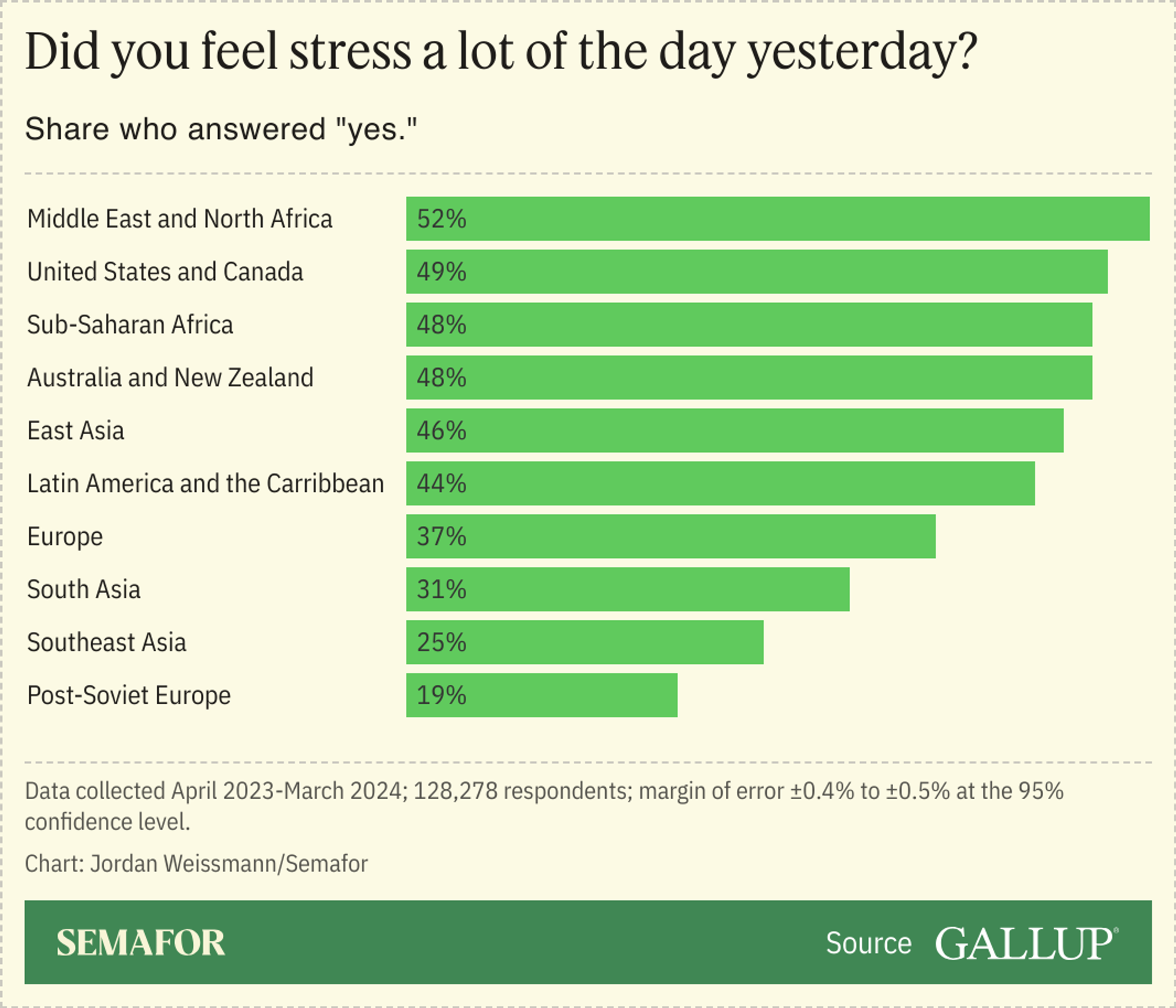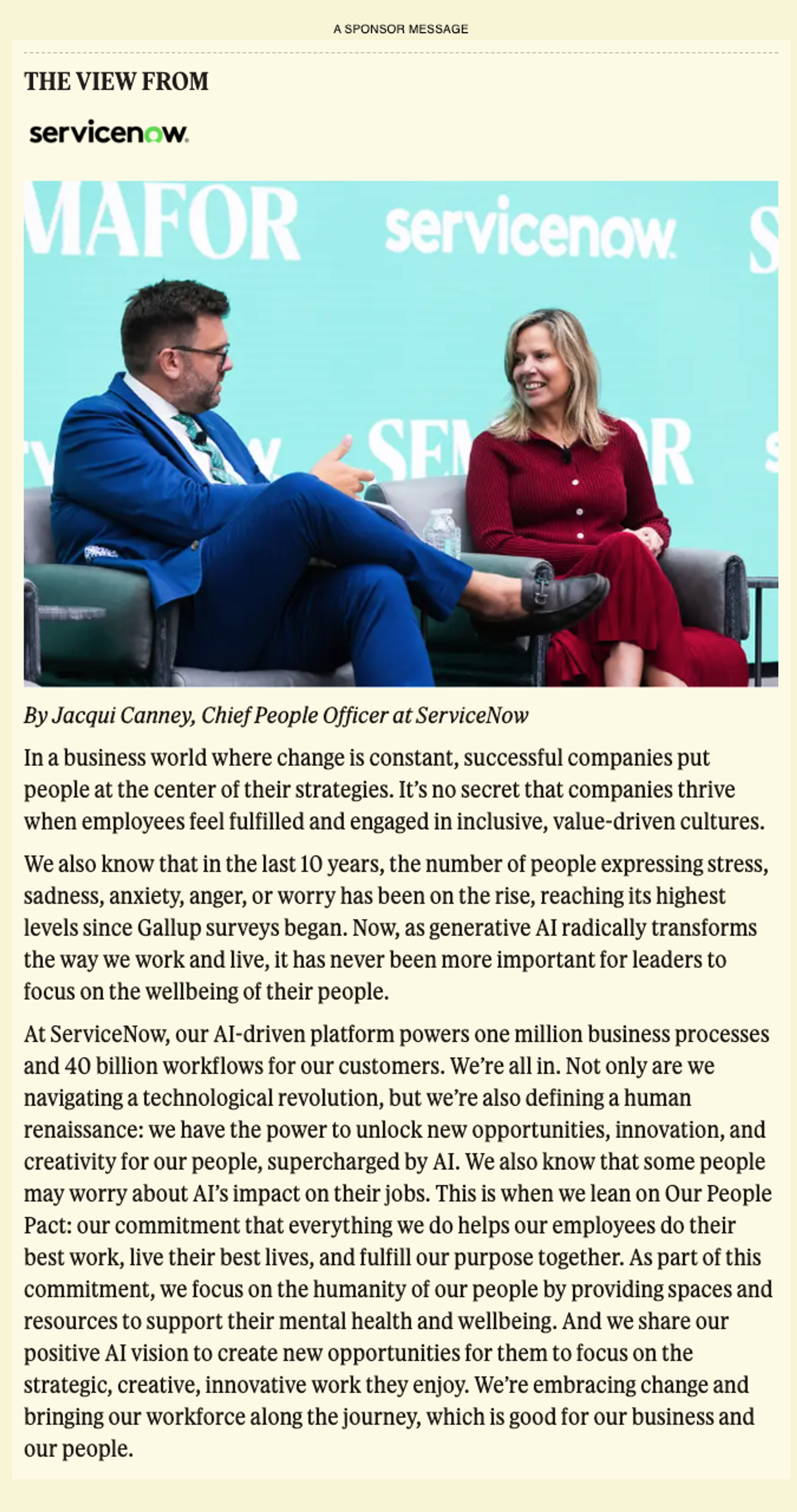The News
Gallup’s 2024 State of the Global Workplace report released on Wednesday found that, overall, most workers don’t feel engaged at work; while one in five said they felt lonely, particularly if they worked remotely full time.
More than three quarters of the global workforce reported feeling unengaged at work — an issue Gallup estimated cost the global economy $8.9 trillion per year due to lost productivity.
Stress levels fell slightly for the first time since the COVID-19 pandemic began in 2020. When broken down by country, almost half of the workers surveyed in the US and Canada said they felt stressed. But a majority of them (53%) also said they were thriving in life.

SIGNALS
Low employee engagement can cost businesses
More engaged business teams drive more positive outcomes within organizations, Gallup found, leading to higher productivity, and in turn, profitability and sales. To increase engagement, companies need to foster trust, said Jim Harter, chief scientist of workplace management and wellbeing at Gallup, at Semafor’s “World of Work” event. Companies have to provide benefits, and create a culture where people are not afraid to use them, said Toni Thompson, head of HR at Etsy.
Loneliness can devastate mental health, but interactions at work could help
Gallup’s report reflected what US Surgeon General Vivek Murthy has called the “loneliness epidemic.” The report tied these feelings to remote work, but it’s not a clear-cut connection. Murthy has written in the past that a work environment where employees feel connected with each other increased their level of satisfaction, and called for employers to make more of an effort to solve the growing crisis. Interaction with people at work helped to reduce feelings of isolation, the Gallup report noted, regardless of whether those interactions were in-person or virtual — an important finding for remote and hybrid workplaces. And as the pandemic fades, workers are feeling less lonely: the report found that in 2023, 1% fewer workers felt lonely than the previous year.
Strategies to manage stress at work aren’t working
While most employees around the world reported feeling stressed, the feeling can vary significantly depending on how organizations are run, Gallup CEO Jon Clifton wrote in the introduction to the report. When a company’s poorly managed, employees are almost 60% more likely to feel stressed than when a company has good management. The current strategies companies adopt to address stress may also be ineffective, Clifton added. He cited a 2024 Oxford University study, which found that solutions like stress management training and wellbeing apps are not making an impact on employees. A better approach would be to change the way people are managed at the organizational level, instead.


